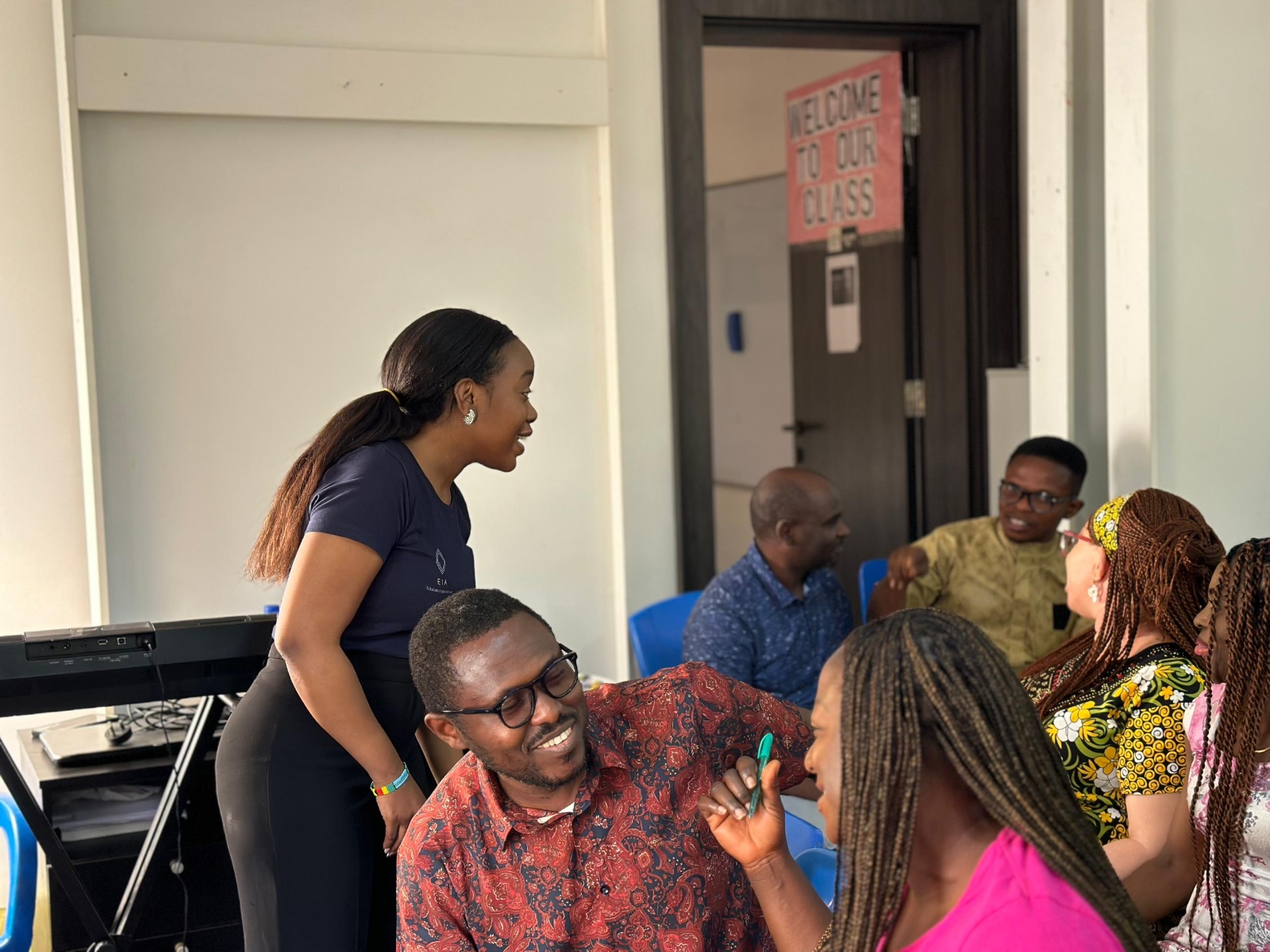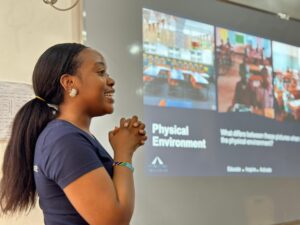Empowering the Next Generation:
A Closer Look at Nigeria’s New Basic Education Curriculum
In 2023, the World Economic Forum highlighted the profound role of education in enhancing social mobility, stating: “Education is one of the most powerful tools for reducing inequality and laying the foundation for sustained economic growth” (World Economic Forum, 2023). In Nigeria, however, this ideal has not always translated into reality. Despite an education system that serves millions, many students still struggle to find their footing in the job market due to a lack of practical, market-ready skills. As a result, even graduates from primary, secondary, and tertiary institutions often face high unemployment rates and difficulties securing meaningful livelihoods.
In response to these challenges, the Nigerian government has introduced a pioneering 15-skill-oriented curriculum, set for implementation in January 2025. This shift aims to ensure that students are equipped with both the hard and soft skills needed to thrive in today’s rapidly evolving labor market. The curriculum focuses on practical skills development, ensuring students have the competencies to meet the demands of both local and global economies.
The New Curriculum: Bridging the Gap Between Education and Employment
The introduction of Nigeria’s skill-based curriculum represents a transformative step towards improving employability and fostering social mobility. By emphasizing hands-on, job-oriented skills, the curriculum aligns with the evolving needs of Nigeria’s labor market. From STEM fields like solar installation and GSM repairs to creative industries such as interior design and event management, the curriculum is designed to prepare students for real-world challenges and opportunities.
This shift is not just about enhancing technical skills; it is about creating an ecosystem where education serves as a direct bridge to sustainable careers. By equipping students with practical competencies, the curriculum empowers them to become self-sufficient, capable of building careers and businesses that contribute to the country’s economy. Over time, these skills can pave the way for greater social mobility, allowing students to break free from the cycles of poverty and unemployment that have historically held many Nigerians back.
Complementing the Government’s Curriculum with Essential Life Skills

While the government’s 15-skill curriculum addresses critical vocational training, it is equally important to focus on the life skills that enable students to succeed in both the workplace and society. Transcend Education has taken proactive steps to complement these efforts by incorporating a holistic approach to education that extends beyond technical training.
Through our 700 Pupils Training Project in Lagos, Transcend focuses on equipping students with essential soft skillssuch as critical thinking, decision-making, goal-setting, professional etiquette, and public speaking. These life skills are crucial for navigating the professional world and complement the practical skills taught in the government curriculum. By integrating these soft skills with the technical training offered by the new curriculum, we are creating well-rounded individuals who are better prepared for both the workforce and entrepreneurship.
For example, critical thinking and problem-solving are invaluable skills that help students adapt to new challenges, while professional etiquette and self-management empower them to thrive in corporate environments. Public speaking and presentation skills build confidence, enabling students to articulate their ideas clearly in any setting—whether in the workplace or as entrepreneurs.
Are These New Skills Truly Enhancing Social Mobility?

While the introduction of practical, skill-based education is a step in the right direction, a key question remains: How far do these new skills really go in enhancing social mobility, particularly in terms of high-earning potential? For many students in disadvantaged communities, the opportunity to break free from generational cycles of poverty hinges not just on employment, but on access to high-paying, sustainable careers.
While skills in trades like solar installation, CCTV maintenance, and event management certainly meet a growing demand in Nigeria’s economy, it’s important to ask: Are these skills sufficient for students to secure long-term, high-earning jobs? In some sectors, entry-level positions may offer low wages or unstable work, limiting the potential for upward mobility. While these skills provide a stepping stone, the full potential for social mobility will depend on how they are integrated into broader career development pathways.
At Transcend Education, we recognize that soft skills are equally crucial in all types of jobs, from entry-level trades to high-level careers. These skills, including problem-solving, adaptability, and effective communication, are highly valued across industries and can help students not only secure jobs but also advance within their careers. In the long run, social mobility will depend not only on access to employment but also on job progression—how well students can build on initial opportunities to secure higher-paying, more stable roles.
Bridging the Gap: Complementing the New Curriculum

At Transcend Education, we view the new curriculum as a significant step forward in addressing Nigeria’s education challenges. Our goal is not to replace or criticize these efforts but to complement and enhance the curriculum’s impact. We recognize the immense potential of the 15-skill curriculum and aim to bridge the gap between academic knowledge and real-world employability by integrating life skills that are essential for personal and professional success.
Through our life skills programs and hands-on learning initiatives, we aim to provide students with a broader skillset that ensures they are work-ready and capable of creating their own opportunities. By partnering with local businesses for internships and mentorships, Transcend helps students gain exposure to the professional world, ensuring that they can apply the skills they learn in real-world settings.
This collaborative approach aligns with the goals of the new curriculum, ensuring that students are not only trained in technical skills but also empowered with the personal and interpersonal skills necessary for social mobility.
Addressing Literacy Challenges
In addition to focusing on practical and life skills, Transcend Education also recognizes the importance of addressing Nigeria’s persistent literacy challenges. According to UNICEF, 35% of children aged 10-14 in Nigeria lack foundational literacy skills, which can hinder their ability to fully benefit from vocational training.
To address this, it is crucial that foundational literacy and numeracy are prioritized from early education stages. While the new curriculum offers a strong framework for skill development, Transcend Education advocates for the inclusion of literacy programs in the curriculum—particularly in primary education. By ensuring students develop strong literacy and numeracy skills early on, they will be better equipped to apply technical skills in the later stages of education and the workforce.
Building a Collaborative Future
At Transcend Education, we are committed to supporting Nigeria’s education reform efforts by working alongside the government, educators, and industry stakeholders. We believe that through collaboration, we can help shape an education system that meets the needs of Nigeria’s youth, providing them with the skills and opportunities they need to succeed.
Our vision for the future is one where education is a powerful tool for upward mobility, equipping students not only with technical expertise but also with the soft skills and real-world experience that ensure long-term success. By partnering with schools and the private sector, we aim to create pathways for students to excel academically and professionally, contributing to Nigeria’s broader development goals.
As we move forward, Transcend Education remains dedicated to helping students build the strong foundation needed to thrive in a rapidly changing world. We are excited to be part of this transformative journey and to collaborate with all stakeholders to ensure that Nigeria’s youth are prepared to lead the country into a future of equitable opportunity and prosperity.
For more information, visit: www.educationtranscend.org